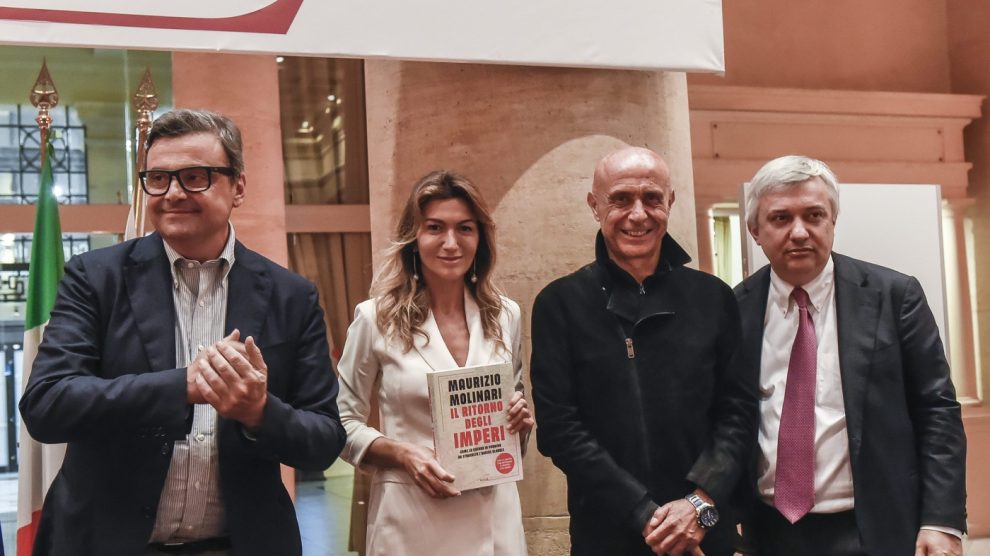Watch out for the Southern flank. In a world torn by the confrontation between democracies and autocracies, one that’s shaken by the Russian war in Ukraine, most eyeballs are watching NATO’s Eastern flank. But all these movements also impact the Southern flank – and spell dramatic challenges.
- Such challenges, along with Italy’s role to play, were discussed on Tuesday at the presentation of a new book (“The Return of Empires: How the war in Ukraine revolutionised the global order”) by Maurizio Molinari, editor-in-chief of Repubblica.
- The event was attended by Carlo Calenda, leader of Azione, and Marco Minniti, President of the Med-Or Foundation and former Minister of the Interior. It was moderated by Formiche’s own Flavia Giacobbe.
A multipolar context. Empires are not over, as previously thought. They were just asleep, argued Mr Calenda. “Despite opposing blocs, cultural identity remained prevalent during the Cold War – and this became evident again with the fall of the Berlin Wall,” he noted.
- Today, the challenge between empires has returned to the fore. There are two main competitors, i.e. the United States and China. “After the People’s Republic hid its capabilities for years, today Xi Jinping is presenting himself to the world as Mao Zedong’s heir and is preparing to overtake the US,” said Mr Minniti.
- Those two prevailing empires, he added, are joined in the multipolar framework by Narendra Modi’s India and Recep Tayyip Erdogan’s Turkey, which seeks (and found) strokes of realpolitik in a mediation space produced by the Ukrainian conflict.
The war in Ukraine upset the balance. Strategies and plans clearly need to be revised, but the Transatlantic front seems to be driven by strong leadership, which Mr Molinari praised in his book. “The ills of democracies manifest themselves in the same way in different countries and must be tackled with a common front. Economic justice, for example, is too great a wound for States to tackle alone. That is why I believe that [US President Joe] Biden has demonstrated, in this crisis, a strategy suited to the circumstances.”
The Mediterranean remains a centre of gravity. Meanwhile, noted the panellists, the European Union is a pivot in world balances, and the Mediterranean a central playing field. According to Mr Minniti, the EU, as a US ally, faces several crises that could upset the balance of peace – namely “the energy crisis, which manifests itself today with the challenge posed by OPEC/OPEC+ on crude oil prices; the humanitarian pincer; and the security pincer, arising from international terrorism in Africa.
- “[Mr] Putin’s Russia has inserted itself in all these challenges, and one of the effects of the conflict in Ukraine is to have brought attention back to these dossiers, which should not be underestimated.”
Italy’s role. In this regard, Rome has the onus to re-establish an incisive foreign policy, leading the Union to recognise its fundamental role in the Med. However, it’s unclear what kind of foreign policy it could actually set out. “The majority line seems contradictory,” said Mr Calenda; “between declarations of pro-Russian sympathy and Atlanticism, one has to wonder if a balance will be found.”
- Still, as far as good neighbour policy should go, it would be crucial to intercept those countries that are not fully democratic to prevent them from falling into the autocratic grip, he concluded.
- “Let us talk in Parliament about foreign policy decisions; let us take responsibility,” said Mr Minniti, calling for a responsible political discourse that does not fall into the trap of a “free-for-all” policy, which demands individual rights and does not prescribe collective duties.




